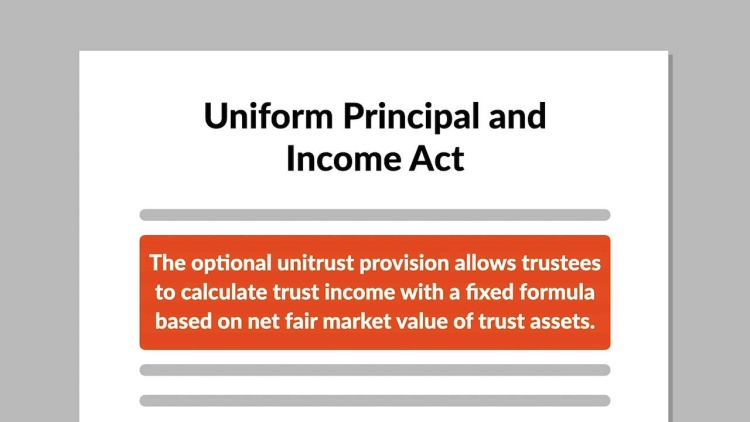In re Matter of Heller
New York Court of Appeals
849 N.E.2d 262 (2006)

- Written by Christine Raino, JD
Facts
Jacob Heller created a trust under which his wife, Bertha Heller, was to receive the trust income and the remainder was to be distributed to his children. Jacob designated his brother, Frank Heller, as trustee, and Jacob’s two sons, Herbert and Alan Heller, as successor trustees after his brother died. After Jacob died in 1986 and Frank died in 1997, Herbert and Alan became trustees. In 2003, Herbert and Alan elected under EPTL 11-2.4(e)(1)(B)(I) to have the unitrust provision of the Uniform Principal and Income Act (UPAIA) applied retroactively to January 1, 2002. Herbert and Alan informed the trust beneficiaries of the election as required by the statute. Under the unitrust provision, trustees were entitled to elect to have trust income calculated under a fixed formula based on the market value of the assets. As a result of the trustees’ election, Bertha’s annual income from the trust dropped from $190,000 to $70,000. Acting as attorney-in-fact for Bertha, Sandra Davis (plaintiff), Bertha’s daughter, brought an action to annul the election under the unitrust provision and remove Alan and Herbert as trustees. Davis moved for summary judgment, asserting that Alan and Herbert were not entitled to elect under the unitrust provision because they were remainder beneficiaries of the trust and that they could not elect retroactively. The New York Surrogate Court denied her motion, and Davis appealed. Herbert and Alan cross-appealed. The Appellate Division affirmed the denial of Davis’s motion for summary judgment, holding that an election under the unitrust provision by an interested trustee was not barred by the UPAIA or the common-law principles governing the conduct of fiduciaries. The Appellate Division also granted the parties leave to appeal and certified to the New York Court of Appeals the question of whether its order was correct.
Rule of Law
Issue
Holding and Reasoning (Rosenblatt, J.)
What to do next…
Here's why 905,000 law students have relied on our case briefs:
- Written by law professors and practitioners, not other law students. 47,100 briefs, keyed to 995 casebooks. Top-notch customer support.
- The right amount of information, includes the facts, issues, rule of law, holding and reasoning, and any concurrences and dissents.
- Access in your classes, works on your mobile and tablet. Massive library of related video lessons and high quality multiple-choice questions.
- Easy to use, uniform format for every case brief. Written in plain English, not in legalese. Our briefs summarize and simplify; they don’t just repeat the court’s language.





